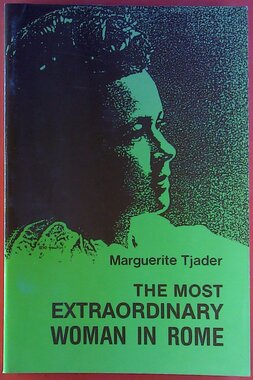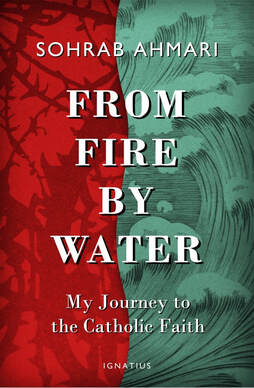Books recommended and reviewed by Fr. Bellusci
for Christian growth and awareness.
for Christian growth and awareness.
|
In reading Mary Eberstadt, a committed pro-life and pro-family author, she argues the present social crisis in western societies have their source in fragmented family relations and loss of faith in God. Eberstadt considers why human sexuality has become so politicised and why a person’s race has turned into politics?
In Eberstad’ts book, Primal Screams: How the Sexual Revolution Created Identity Politics, she examines the role of the family -- and its breakdown -- since the 1960s leading up to what confronts us today: “identity politics.” The sexual revolution led to casual sex with men and women treating each other as objects; lack of fidelity or “serial monogamy,” children confused about their parents, their own sexuality, their identity. Eberstadt convincingly argues that “identity” has become radically politicised but can be traced to a deeper conflictual source: lack of family bonding and society disconnected from God.
0 Comments
Chiara Corbella Patrillo: A Witness to Joy relates the powerful story of a young couple, Chiara and Enrico, who meet in Medjugorje. The relationship has a rocky start but with the help of a spiritual director whom they both met in Assisi, the marriage finally takes off.
Once married the challenge for the young couple is Chiara’s serious difficulties with her pregnancies and the fragile condition of their babies before birth. The complicated conceptions and carrying the baby to term occurs more than once; but their babies are baptised soon after birth. Their baby boy Francesco brings them great joy. Chiara’s health remains fragile throughout the marriage and her condition worsens after the birth of Francesco. The story shows that for Chiara the human experience of motherhood comes with the responsibility to protect the life of her unborn child -- regardless of the baby’s condition: she and Enrico are filled with hope and joy; they share the same fundamental values: life of a child must be protected. Remarkable in the life of Chiara is the ongoing suffering-- and joy -- the experiences of motherhood, love of her husband, family and friends. Chiara not only shares her deep inner joy, but the power of God’s grace is manifested in her life and Enrico’s. The story was written by Simone Troisi and Cristiana Paccini, and translated into English by Charlotte J. Fasi. Originally published in Italian by the Franciscan publishing house, Proziuncola, 2013, the English translation is published by Sophia Institute in 2015.  This book review, written on July 23/2019, memorial of Saint Bridget of Sweden. I obtained a copy of The Most Extraordinary Woman in Rome while leaving the Bridgettine Guest House in Turku, Finland. In fact, my Finnish friend, Father Tuomas Nyyssölä, recommended and obtained the book for me; the kind Bridgettine Sister in her distinct grey habit removed the book from the bookcase and gave it to me. Marguerite Tjader writes a beautiful biography drawing from the memoirs Maria Elizabeth Hesselblad, canonised by Pope Francis in 2016. Tjader presents the intense spiritual journey of the Swedish-born Hasselblad (1870). The account of Hasselblad’s life operates at several levels: Hasselblad’s conversion from Lutheranism to Catholicism; becoming a Sister of the Order of the Most Holy Saviour (permission granted by Pope Pius X, 1906); struggles to establish a Branch of the Order of the Most Holy Saviour (OSSS); acquiring the Carmelite convent where St. Bridget had lived (1350-1373) for the Bridgettine Sisters; assuring the use of the Bridgettine Roman guest house for its original purpose, Swedish and Scandinavian Catholic pilgrims visiting Rome; finally, the transition to an ecumenical enterprise where work the Catholic convent also contains a chapel serving Lutheran Scandinavians  Sohrab Ahmari beautifully narrates his journey from Islam to Roman Catholicism in his autobiography, From Fire by Water. Ahmari’s conversion story begins in the the Islamic Republic of Iran following the 1979 Iranian Revolution, and the experiences of an Islamic theocracy, “where God appears in the form of floggings and judicial amputations, scowling ayatollahs and secret police” (p. 62). Ahmari believes that his distancing himself from God also had to do with “the Islam of Khomeini and his followers…a religion that only imposes -- and that by the sword or the suicide bomber” (p. 63). Arriving in Utah with his mother, Ahmari immerses himself in “goth subculture,” identifying himself as an atheist and a nihilist, drawn to Friedrich Nietzsche, existentialists as in Jean-Paul Sartre, and eventually gravitates towards left-wing thinkers under the influence of Marxism, “Yet Marxism’s greatest attraction was its religious spirit” (p. 103). Remaining steadfast in leftist ideologies Ahmari discovers the postmodernism of Jean-François Lyotard and Michel Foucault. The chapter, “Three Feasts” vividly describes Ahmari’s state of moral degradation. Ahmari has reached rock bottom. After his third “feast” asking himself the question, “When are you going to change,” Ahmari finds himself walking past a Capuchin monastery and walks in; his first exposure to a Roman Catholic Mass. The religious experience makes a significant impact on Ahmari, “After these encounters with the Mass, I could no longer truthfully describe myself as an atheist” (p. 148). And yet, Ahmari admits, “At no point did I consider taking up the religion that the accident of my birth assigned me. The Islamic Republic had ruined Islam for me, and the argument that radical Islamism was a gross distortion of an otherwise peaceful rand reasonable faith never persuaded me…I knew the Arabs had converted the Persian Empire at the edge of the sword, not through interfaith dialogue” (p. 148).  Mother Teresa: No Greater Love, presents the writings of St. Mother Teresa of Calcutta. This extraordinary woman, devoted to the “poorest of the poor,” was motivated by the Gospel to bring the love and healing of Jesus Christ to the forgotten members of society. St. Mother Teresa’s missionary work concretely demonstrates the Christian vocation: to bring the love of Christ into a broken world. No Greater Love is divided into thirteen chapters with writings on St. Mother Teresa thematically presented: Prayer, Love, Giving, Being Holy, Work and Service, Poverty, Forgiveness, Children and the Family, Suffering and Death, Missionaries of Charity, Conversation with Mother Teresa, and Mother Teresa’s biography. The book contains a foreword written by Thomas Moore and edited by Becky Benenate and Joseph Durepos, published by New World Library, Novato, California, 2001. |
AuthorFr. David Bellusci, O.P. List by TitlesNo Greater Love Archives
June 2020
Categories |